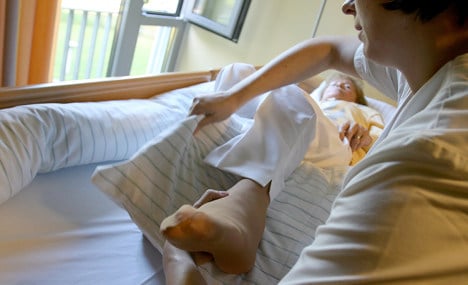The results found by researchers at the University of Bielefeld was presented by German Family Minister Kristina Schröder on Tuesday evening. She told the Neue Osnabrücker Zeitung beforehand that the researchers had exposed “shockingly high” levels of abuse – roughly double that what able-bodied women experience.
“The good news is that with these findings, more light will finally be brought into this cruel darkness,” she told the newspaper. “Physical and sexual violence takes place everywhere people rely on support and care, and this trust can be exploited.”
During childhood and adolescence, about half of all women are molested sexually by adults, according to the findings, but even when they grow up, the abuse doesn’t stop. About 30 percent of women with disabilities so severe that they must live in institutions have been abused by other adults, according to the study – this is compared to the 10 percent cited in a previous study.
Additionally, three out of four women with disabilities experience non-physical sexual harassment by the time they become adults, and between 58 and 73 percent of disabled women are physically abused during adulthood, the research reported.
Between 50 and 60 percent of women are victimized by psychological abuse during their youth, compared to 36 percent of women in the general population, according to the report.
Schröder has plans to start a special 24-hour hotline specifically for women facing abuse in 2012.
Bundestag member Herman Kues said that in light of the study results, “We have to give these women special protection and support.”
DPA/The Local/mdm



 Please whitelist us to continue reading.
Please whitelist us to continue reading.
Member comments